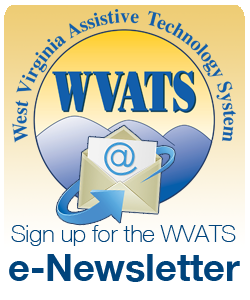Summer 2020
Download a PDF of this Newsletter. 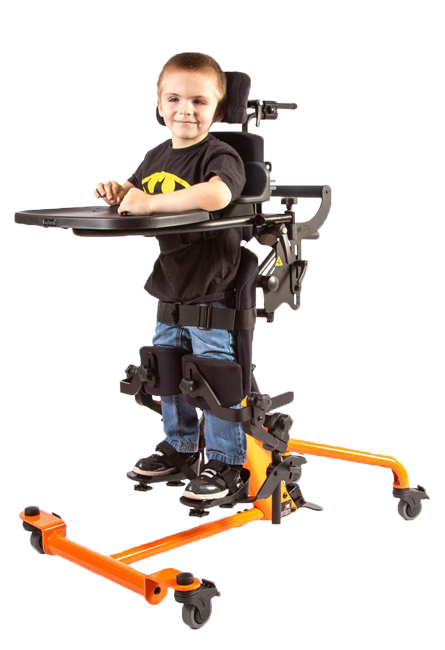
Articles:
Pay It Forward WV
It can be hard to find funding for mobility equipment for kids. Many devices are not covered by Medicaid or private insurance. These devices are important for therapy and community living. They can also help with independence. WVATS received a grant to help families access this type of equipment.
The Pay It Forward West Virginia project is funded by the Christopher and Dana Reeve Foundation. The project purchased 16 pieces of equipment to loan to families. The loan period will be longer than the normal 30 days.
Available equipment includes:
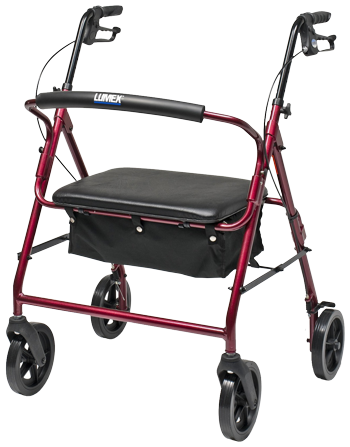
- Gait trainers
- Standers
- Activity chairs
- Strollers
- Adapted tricycles
The equipment is for kids:
- Between the ages of 3 and 12 years old
- Who have some form of paralysis
- Working with a physical or occupation therapist
WVATS hopes that this project can show the need for funding of these devices. Pay It Forward West Virginia also takes donations of gently used equipment for all ages. The equipment will be cleaned and made ready for someone else in need. If you or someone you know has unused equipment, consider paying it forward.
For more information or to apply to the Pay It Forward West Virginia project, contact WVATS at 800-841-8436 or wvats@hsc.wvu.edu.
Powerful Tools
Hoyer Advance-E 340 Portable Lift
This tool makes lifting patients easier and more effective. The swan neck design allows the lift’s arm to be positioned right where you need it. The lift can safely lift patients from the floor, chairs, hospital beds and other surfaces. The lift can easily slide beneath furniture and it has a tool-free folding design. The maximum lifting capacity is 340 pounds. The West Virginia Assistive Technology System (WVATS) also has a choice of sling sizes available in medium or large.
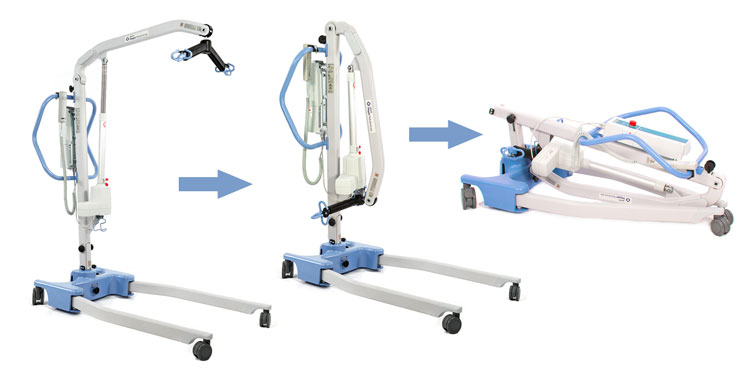
Rollators
Rollators are mobility aids. Users do not need to lift the device to take a step as you would with a cane or a walker. A fold-down seat is beneficial for waiting or resting. The built-in storage solutions with many rollators can offer convenience when on the go. WVATS has a standard rollator and bariatric rollator available.
Beasy Transfer Board
The Beasy Transfer Board is a patient transfer device designed to make transferring patients easier. This can help reduce the risk of injury to caregivers. The Beasy Board places the user on a safe, circular seat for transfers. The seat moves across the base of the system with the user on it, reducing friction on the user’s skin.
Liftware
Two Liftware sets are now available. The Liftware Steady Starter Kit has a stabilizing handle that is designed to respond to the effects of tremors and shaky hands. The Liftware Level Starter Kit has a leveling handle that is designed to accommodate limited hand and arm mobility. The handles have built-in sensors and motors to help make eating easier. Both kits come with the following attachments: soup spoon, regular spoon, and fork. The attachments easily connect to the Liftware handles.
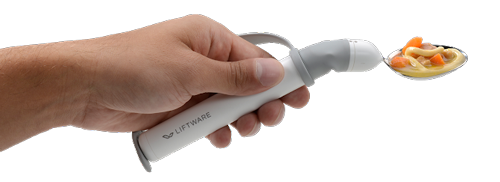
For more information on these items, contact WVATS at 800-841-8436 or email wvats@hsc.wvu.edu.
Keeping equipment clean

Keeping equipment clean, or sanitizing, is a critical part of WVATS services. Many of the people we serve are elderly or have fragile health. Recent events have shown the importance of thorough cleaning. This should include all assistive tools. We have updated our sanitization policy and procedures to ensure the health and wellbeing of our consumers and staff.
Our cleaning procedures include:
- A separate cleaning station to keep devices that need to be cleaned away from clean devices
- Medical grade disinfectants for cleaning devices before device loans go out and after they are returned
- Ultraviolet (UV) boxes and wands to clean electronics and cloth items that are not easily cleaned
- Medical grade wipes and UV wands will be used to disinfect tools at events
If you are using assistive tools, a cleaning system needs to be in place and followed. Agencies that provide equipment should also have a plan. This keeps consumers and staff safe. If you or your organization would like more information on device sanitization, please contact us.
Legal Aid of West Virginia

Legal Aid of West Virginia (LAWV) helps people in West Virginia with legal problems. They can also provide advocacy services. This is a free service for people who qualify. Legal Aid can help:
- Low-income families
- Seniors
- Victims of domestic violence
- People who have disabilities
Legal Aid can also help with disability benefits. They assist people who have denied insurance claims too. This may happen to people who need specific equipment to meet their needs. They also provide other legal services.
Insurance and legal systems can be very complicated. Legal Aid helps people have equal rights in the courtroom and in communities. They have 12 offices in West Virginia. For more information, visit www.lawv.net or call 866-255-4370.
Accessible Voting
West Virginians with disabilities have a new way to vote this year. A new law allows some voters to use an electronic absentee ballot. The ballots are an accessible way for people to vote privately and securely. Electronic absentee ballots are for voters who cannot use their polling place due to a physical disability and cannot use a paper ballot without help.
To apply to use the electronic ballot:
- Download the absentee ballot application at GoVoteWV.com or request one from your County Clerk
- Follow the instructions on the application
- Check the box to vote electronically
- Enter your email address
- Submit your application to your County Clerk by mail, fax or email
- Watch for an email and instructions from your County Clerk when your ballot is ready
Voters can also ask for accommodations at their polling place. Accessible voting machines can help people who have problems voting due to blindness, advanced age, disability or an inability to read or write. These machines can read text aloud. They can also make text larger. Braille or tactile keyboards should be available. Switch access is also a feature on accessible voting machines.
If the precinct is not Americans with Disabilities Act (ADA) compliant, a voter can request a precinct change. This must be done no later than 30 days before the election. If you cannot leave your car, curbside voting is an option if no voters are waiting inside.
The WVATS has assistive tools for loan if a polling place needs to make accommodations. Ramps, headphones and other tools that can be used for voting are available.
Every person has the right to vote. No barrier should stand in their way. Register to vote if you have not already. If you have questions about voting accommodations or barriers, contact Disability Rights of West Virginia, 800-950-5250.

